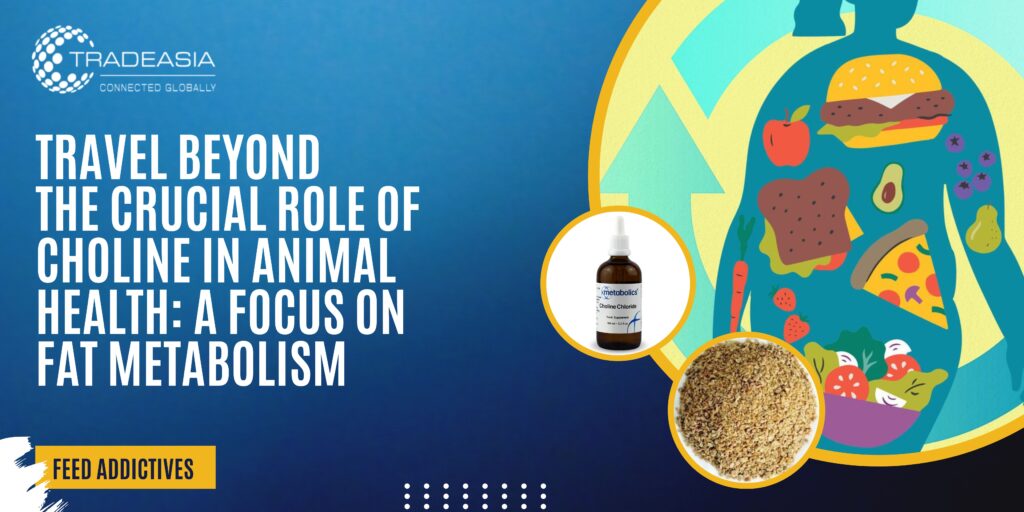
In the field of animal health and nutrition, choline appears to play an important role in promoting health and productivity. Although its importance spans many different aspects of animal health, this article focuses on choline’s central role in fat metabolism, a fundamental process that affects health. and performance of livestock, poultry and other animals.
Choline: The unsung hero of animal nutrition
Choline is an essential nutrient, part of the B vitamin family, essential for animal health.
Although it often operates discreetly on the basis of animal nutrition, its contributions are essential.
Effects of choline on fat metabolism
Choline’s role in fat metabolism is multifaceted and fundamental to animal health:
- Fat transport: Choline facilitates transport dietary fat in the body.
It ensures that fats are moved and used effectively, preventing their accumulation in the liver, a condition known as fatty liver syndrome. - Prevention of fatty liver disease: For example, in poultry, choline plays an important role in the prevention and treatment of fatty liver disease, which can be a common problem in livestock systems intensive farming.
- Lean Growth: Choline contributes to lean growth in animals, ensuring that fat is stored where it is needed for energy and cell function, rather than accumulating in unwanted areas want.
- Cell membrane integrity: It is a major component of cell membranes, important for fat metabolism and overall cell health.
Effects on livestock and poultry
The role of choline in fat metabolism is important for livestock and poultry farming:
- Improves weight gain: Choline supplementation improves gain weight in animals, promote growth and development effectively.
- Improved egg production: In poultry, this leads to improved egg production rates and egg quality.
- Reduced Mortality: Choline’s contribution to healthy fat metabolism has been associated with reduced mortality in various animal populations.
Challenges and considerations
Although the benefits of choline on fat metabolism are clear, there are some challenges and considerations:
- Optimal dosage: Dosage determination Correct intake of choline for animal populations is essential and within a specific dietary context.
- Uniform Distribution: Ensuring that choline is evenly distributed in pet foods and supplements is critical to its effectiveness.
- Regulatory Compliance: Compliance with regulatory standards and guidelines related to the use of choline is extremely important.
Conclusion
The role of choline in fat metabolism is an integral part of animal nutrition, with significant implications for the health, productivity and welfare of livestock and poultry. Choline’s ability to promote lean growth, prevent fatty liver disease and optimize energy use makes it an important ally in livestock production. As understanding of its contributions to fat metabolism deepens, the importance of choline in animal health and nutrition continues to increase, highlighting its status as a unsung heroes in the quest for a healthy and thriving animal population. If you are interested in Choline Cloride and other products for your specific business needs, please do not hesitate to contact us. Our team is ready to assist you in navigating these developments and finding the best solutions for your requirements.
